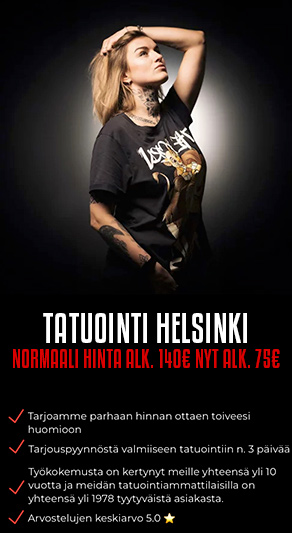- Liittynyt
- 14.12.2005
- Viestejä
- 498
Alustus
http://www.pdnpulse.com/2010/04/insult-to-injury-afp-suing-photographer-it-stole-photos-from.html

Eli, perseelleen meni kun ilmeisesti kuvaaja ei oikein ymmärtänyt mitä luovutti jne.
Mutta aiheeseen, eli miten nuo mediat nyt sitten oikein kuvien kanssa toimivat? Esim Mikellähän on kuvia tuolla Facebookissa, mites ne oikeudet menevät niissä? Ja jos esim laitan kuvan cropattuna hieman enemmän, onko juuri se cropattu kuva oikeuksineen annettu, vai kok alkuperäinen teos?
Eli hieman selvennystä kaipailisin, varsinkin teiltä jotka kuvaatta rahasta, eli ette lataa sinne facebookkiin pelkkiä räpsyjä...
http://www.pdnpulse.com/2010/04/insult-to-injury-afp-suing-photographer-it-stole-photos-from.html
Insult to Injury: AFP Suing Photographer It Stole Photos From
It's hard to explain a mind-blowing mess like this one, but AFP is suing a Haitian photojournalist for "antagonistic assertion of [his] rights" after it distributed his news-breaking earthquake photos all over the world without his permission. AFP is mad because the photographer, Daniel Morel, sent cease and desist letters to numerous AFP clients, allegedly made false and defamatory statements about AFP, and made unreasonable monetary demands of AFP for infringement.
AFP is asking a federal court in Manhattan to declare that it did nothing wrong, and force Morel to pay unspecified damages for defamation.
Morel, a veteran photojournalist and former AP photographer, was in Port au Prince when the earthquake struck. He shot news images moments after the quake, and within an hour, the daughter of a friend helped him post 13 high resolution images on Twitter from a hotel that still had a working internet connection.
AFP downloaded the images and distributed them through Getty, it's distribution partner. Morel's iconic image of an earthquake victim (shown above) appeared on the front pages of newspapers all over the world the next day. In many cases, the images carried the credit of AFP, Getty, and a Dominican photographer who stole Morel's images and re-tweeted them as his own. (Morel says AFP knew who the images actually belonged to, a claim AFP does not seem to be disputing).
Morel started sending the cease and desist letters to AFP and various users of Morel's images. AFP says it immediately stopped distributing his images. But the damage was done, and Morel has been seeking an unspecified payment from AFP.
AFP finally sued, asserting that the Twitter Terms of Service are perfectly clear: Anything uploaded to Twitter is free for re-distribution. Besides, AFP says, Morel didn't indicate that he was putting any restrictions on the use of the images that he tweeted.
Morel's response in court papers to that he "had no prior experience with Twitter...and did not read the Terms of Service." He also explains that he posted the images on Twitter with hopes that they "would span the globe to inform the world of the disaster, and that he would also receive compensation and credit as a professional photographer for breaking news of the earthquake before the news and wires services."
In a perfect world, photographers could take their stories to the world without major distributors and other middlemen, and somehow get paid--even after the fact--for pictures they have posted for all the world to see.
In fact, The Wall Street Journal, the Associated Press, and others did see Morel's tweet and offer him money to publish and distribute his images, according to papers he filed in court. Not everyone, in other words, assumed that Morel's images were free for the taking because of Twitter's Terms of Service.
But a perfect world it isn't. The internet may be empowering, but this case shows how vulnerable photographers' copyrights are--and not just to petty thieves, but to big corporations who have the money and lawyers to beat small copyright owners up in court on the grounds that some fine print makes it legal to copy and distribute their works without permission.
That, of course, raises the question: what is copyright really worth anymore if technology has turned it into something that benefits only those with the resources to enforce and defend it at every turn?
Eli, perseelleen meni kun ilmeisesti kuvaaja ei oikein ymmärtänyt mitä luovutti jne.
Mutta aiheeseen, eli miten nuo mediat nyt sitten oikein kuvien kanssa toimivat? Esim Mikellähän on kuvia tuolla Facebookissa, mites ne oikeudet menevät niissä? Ja jos esim laitan kuvan cropattuna hieman enemmän, onko juuri se cropattu kuva oikeuksineen annettu, vai kok alkuperäinen teos?
Eli hieman selvennystä kaipailisin, varsinkin teiltä jotka kuvaatta rahasta, eli ette lataa sinne facebookkiin pelkkiä räpsyjä...



